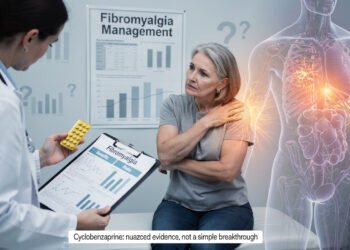Why Trauma Healing Practices Matter
Trauma affects both the mind and body, disrupting the nervous system and leaving lasting imprints on health and wellbeing. Research shows that recovery requires more than traditional talk therapy—it needs integrated trauma healing practices that restore regulation, safety, and resilience.
In this blog, we’ll explore seven science-backed trauma healing practices that support recovery and provide hope for healing.
1. Understanding the Nervous System
The nervous system plays a central role in trauma. When the body stays in “fight, flight, or freeze,” it can become dysregulated. According to Dr. Stephen Porges’ Polyvagal Theory, regulation begins when people feel safe. Trauma healing practices aim to restore this balance by calming the autonomic nervous system through breath, movement, and connection.
2. Yoga and Breathwork
Yoga and controlled breathing are powerful ways to regulate the body. A 2011 Harvard study found that yoga lowered cortisol levels and improved emotional resilience in trauma survivors. Simple techniques such as diaphragmatic breathing, alternate-nostril breathing, and restorative yoga postures can reduce hyperarousal and restore calm.
3. Mindfulness Meditation
Mindfulness brings attention to the present moment, interrupting intrusive memories and anxious cycles. Research published in JAMA Psychiatry (2014) showed that mindfulness-based stress reduction significantly decreased symptoms of post-traumatic stress. Even 10 minutes of guided meditation can help re-train attention and strengthen resilience.
4. Somatic Therapy
Trauma often lives in the body as stored tension or unprocessed energy. Somatic therapies like movement, dance, or drama therapy offer safe ways to release emotions. According to Peter Levine’s work in Waking the Tiger, somatic experiencing helps the body discharge trauma without re-traumatization, giving survivors a renewed sense of safety.
5. Neurofeedback
Neurofeedback retrains brain activity patterns linked to stress. By using biofeedback devices or HRV (heart rate variability) monitors, individuals can learn to shift out of chronic stress states. A study in Applied Psychophysiology and Biofeedback (2016) demonstrated improvements in sleep, mood, and trauma symptoms after neurofeedback training.
6. Supportive Relationships
Healing does not happen in isolation. Safe, supportive relationships provide belonging and restore trust. Dr. Judith Herman, in her book Trauma and Recovery, emphasized that recovery unfolds through reconnection whether with family, friends, or therapy groups. Trusting relationships can help regulate emotions and reduce feelings of isolation.
7. Lifestyle Practices
“Lifestyle strategies such as nutrition, regular exercise, and sleep hygiene complement trauma recovery. Anti-inflammatory foods, movement practices like walking or tai chi, and consistent sleep routines help stabilize mood and regulate the body’s stress response. Nutrition plays an especially important role. Learn more about Functional Foods and mental wellbeing.”
Recommended Resources
| Category | Resource | Image / Link |
|---|---|---|
| Books | The Body Keeps the Score — Bessel van der Kolk | View on Amazon |
| Waking the Tiger — Peter A. Levine | View on Amazon | |
| The Polyvagal Theory in Therapy — Deb Dana | View on Amazon | |
| Trauma and Recovery — Judith Herman | View on Amazon | |
| Healing the Fragmented Selves of Trauma Survivors — Janina Fisher | View on Amazon | |
| Online Resources | National Center for PTSD | 🌐 Website |
| Trauma Research Foundation | 🌐 Website | |
| Mindful.org | 🌐 Website | |
| Yoga Alliance | 🌐 Website | |
| Somatic Experiencing International | 🌐 Website | |
| Amazon Tools & Products | Yoga & Breathwork | mats |
| Mindfulness Support | guided meditation | |
| Somatic Therapies | dance therapy books | |
| Neurofeedback | HRV monitors | |
| Supportive Connection | trauma workbooks |
⚠️ Affiliate Disclosure
This post may contain affiliate links. If you click through and make a purchase, we may earn a small commission at no extra cost to you. We only recommend books, tools, and resources we genuinely believe can support healing and well-being.
Key Takeaways
-
Trauma affects both the mind and body, and healing requires integrated approaches.
-
Yoga, mindfulness, and somatic practices regulate the nervous system and reduce hyperarousal.
-
Neurofeedback and lifestyle habits provide additional tools to calm the body.
-
Supportive relationships are central to recovery and resilience.
-
With the right resources, individuals can move toward healing, balance, and safety.
Scientific & Clinical References in the Blog
-
Bessel van der Kolk, MD — The Body Keeps the Score
-
Stephen Porges, PhD — Polyvagal Theory
-
Judith Herman, MD — Trauma and Recovery
-
Peter Levine, PhD — Somatic Experiencing / Waking the Tiger
-
Janina Fisher, PhD — Healing the Fragmented Selves of Trauma Survivors
-
National Center for PTSD (US Department of Veterans Affairs)
-
Trauma Research Foundation (founded by van der Kolk)
-
Scientific Studies cited in-text:
-
Yoga and Breathwork: Studies showing reduced cortisol and improved heart rate variability in PTSD patients.
-
Mindfulness Meditation: Clinical trials showing reductions in intrusive memories and anxiety.
-
Neurofeedback: Research on brain retraining for trauma survivors.
-
























